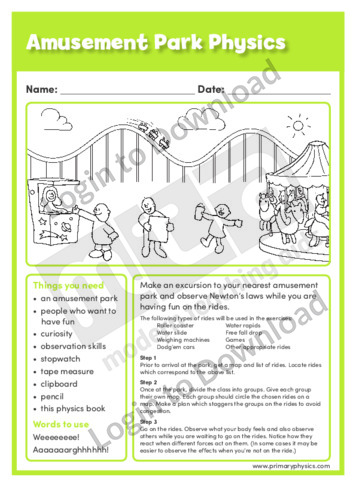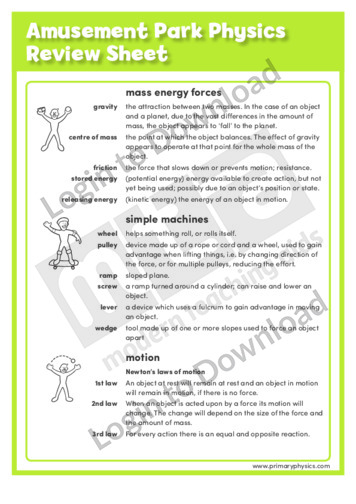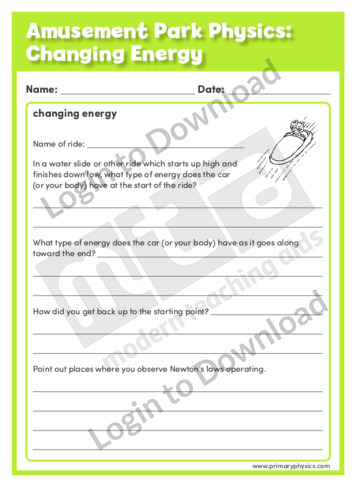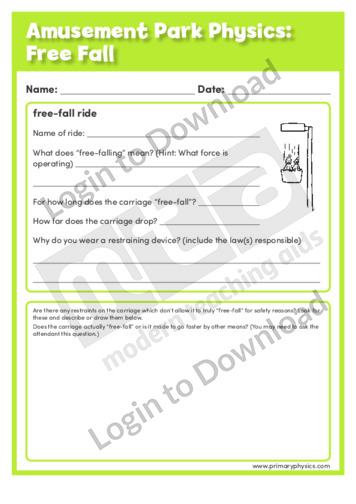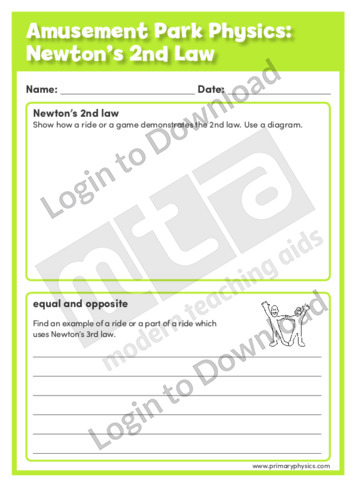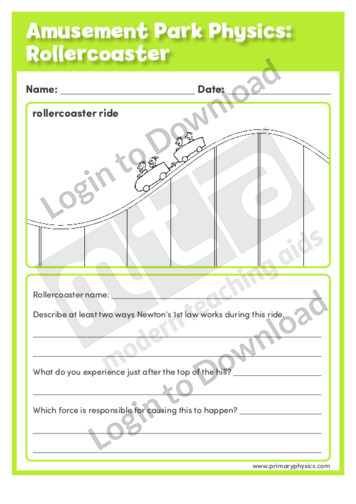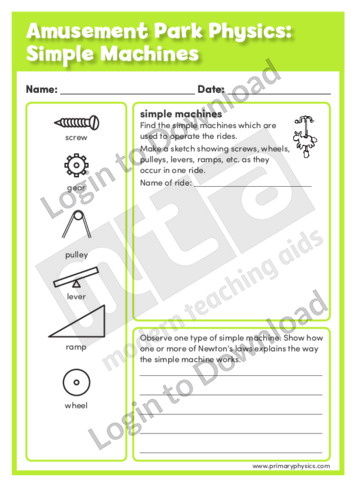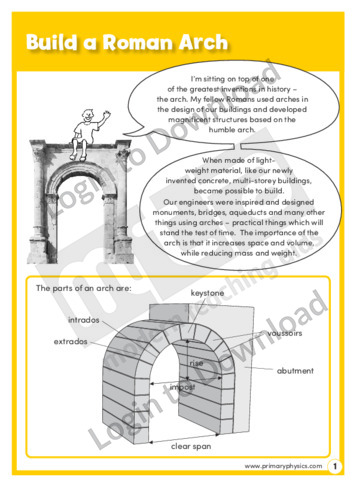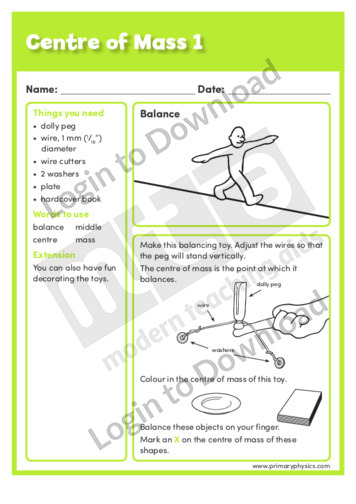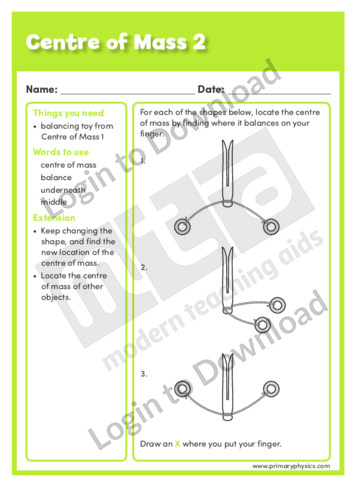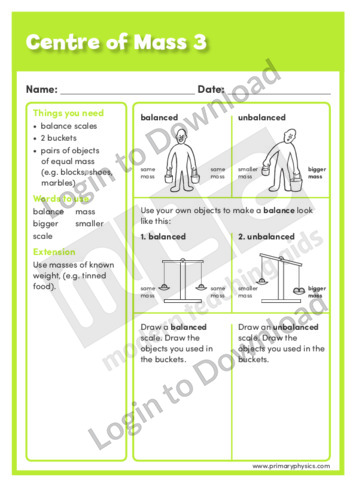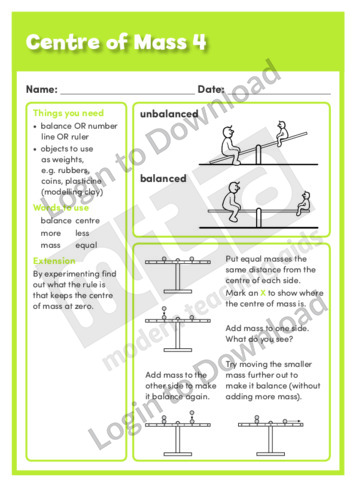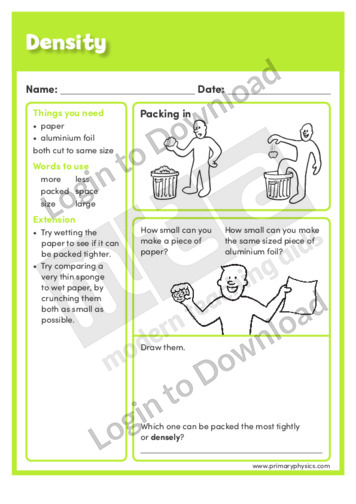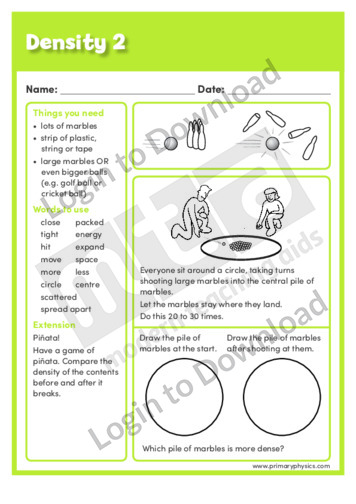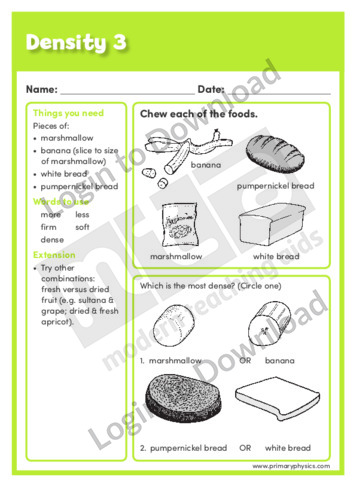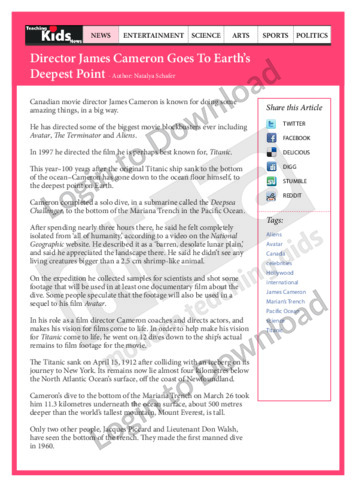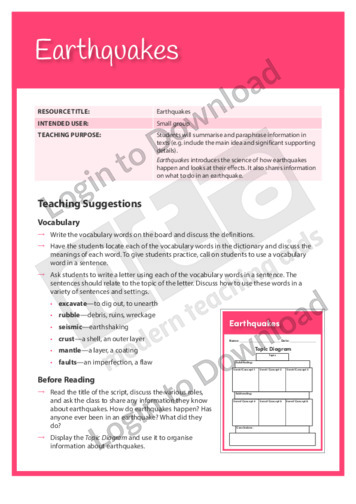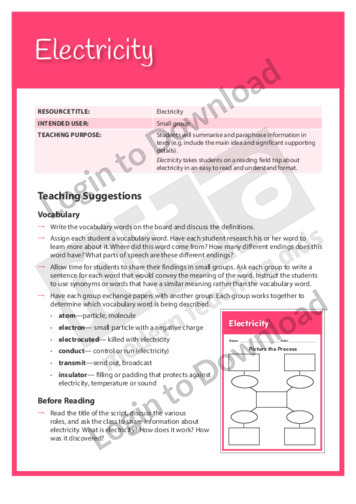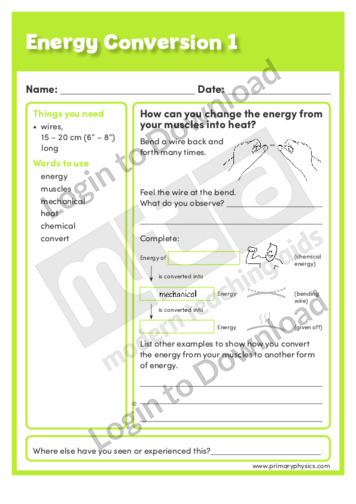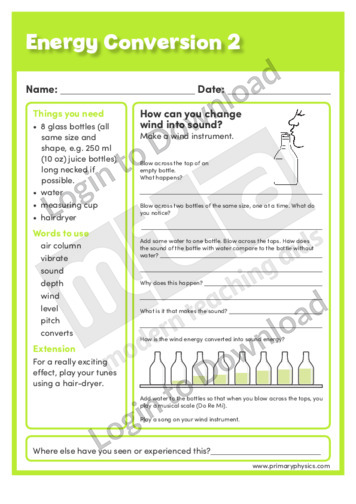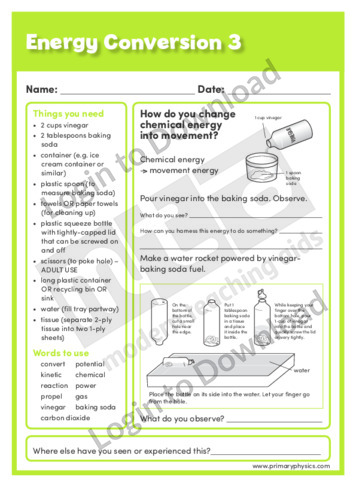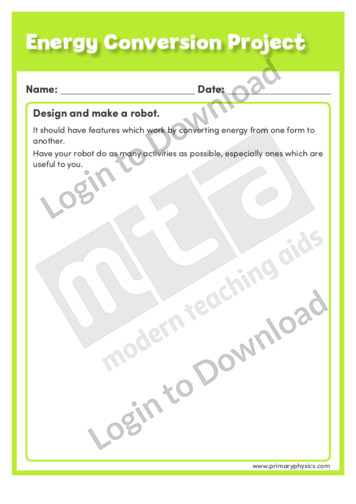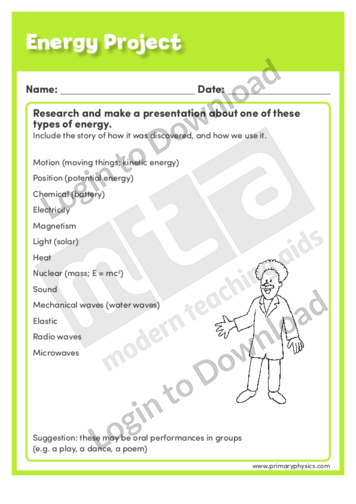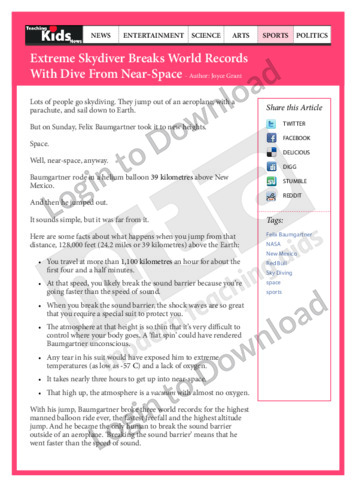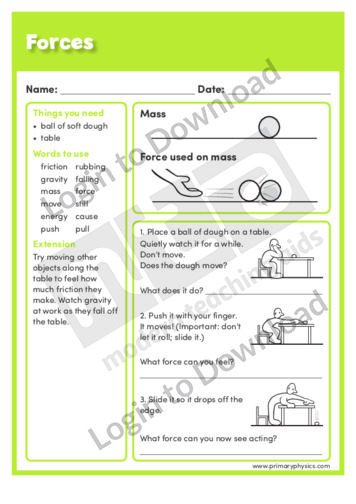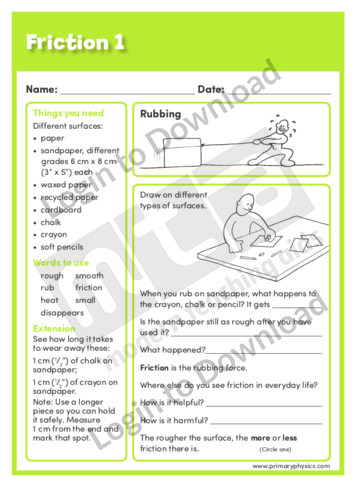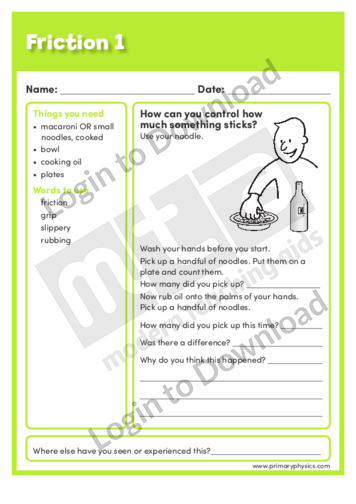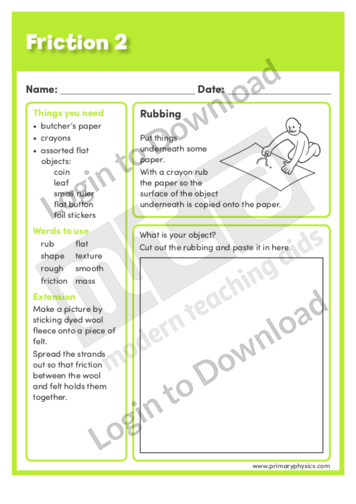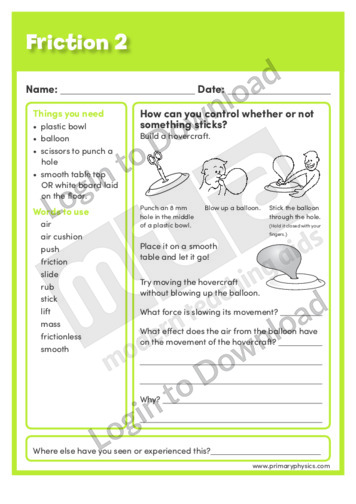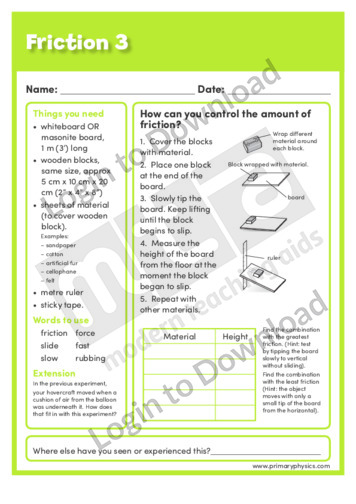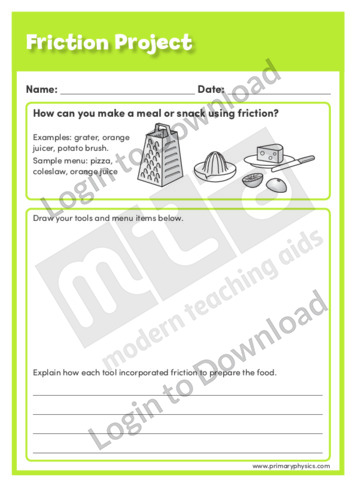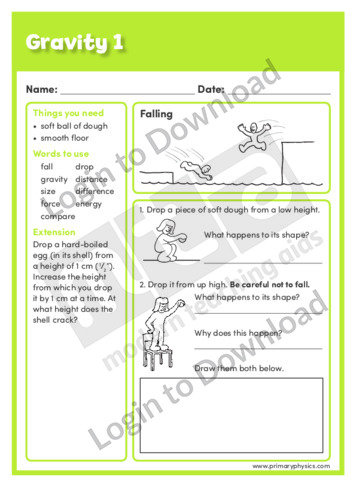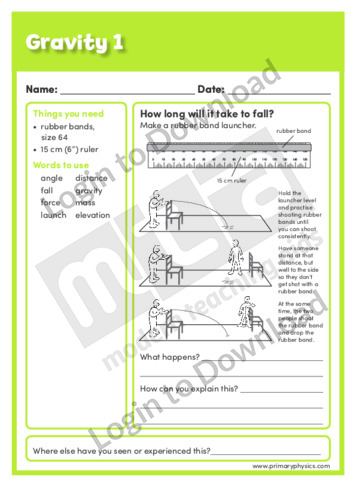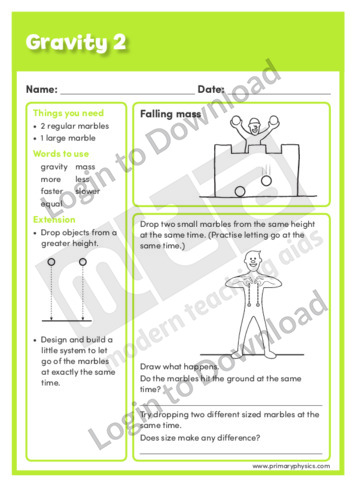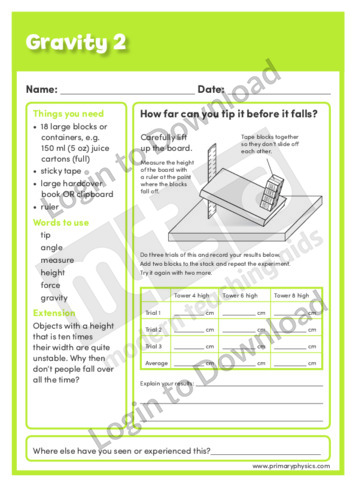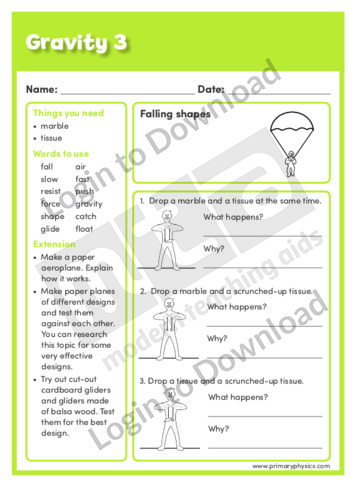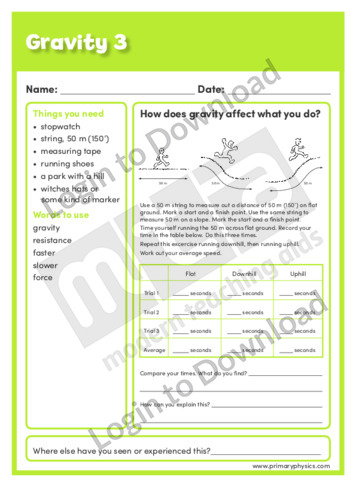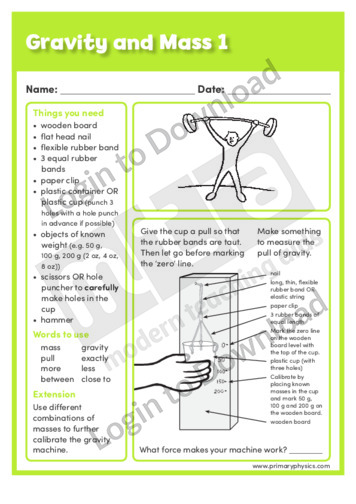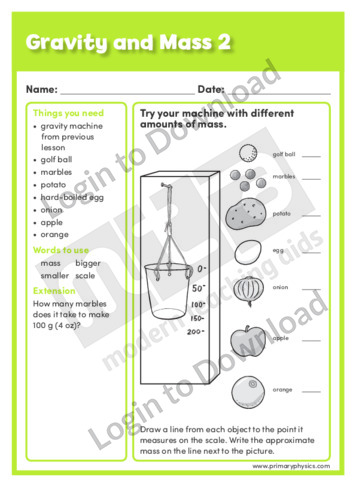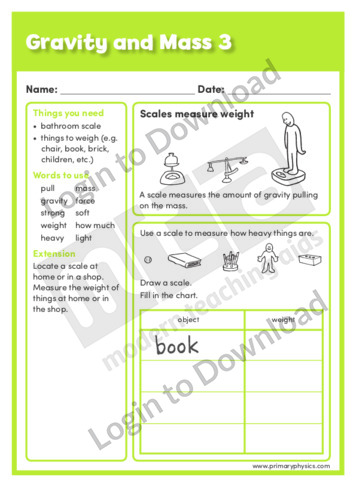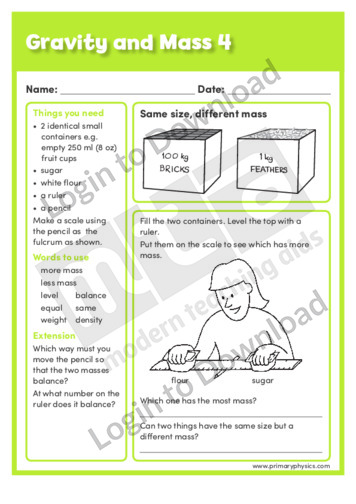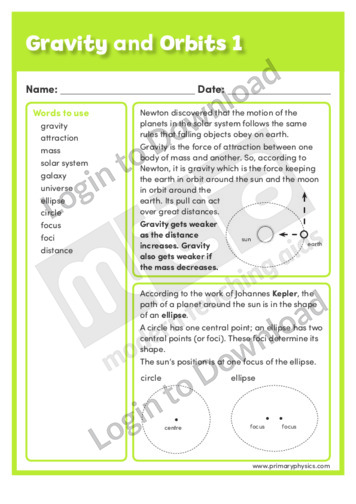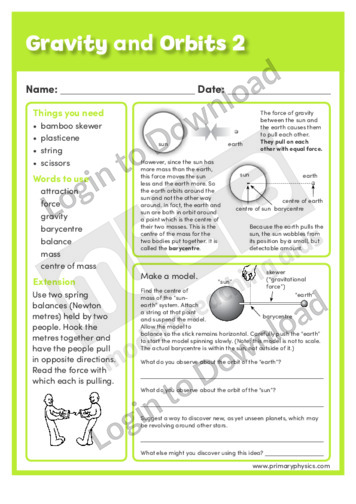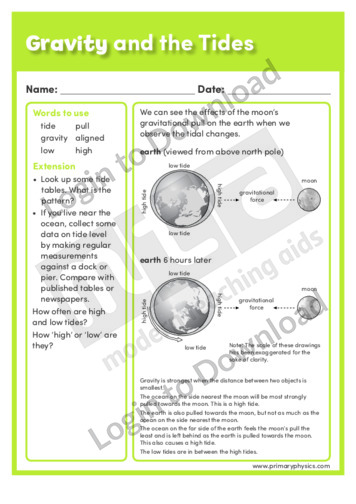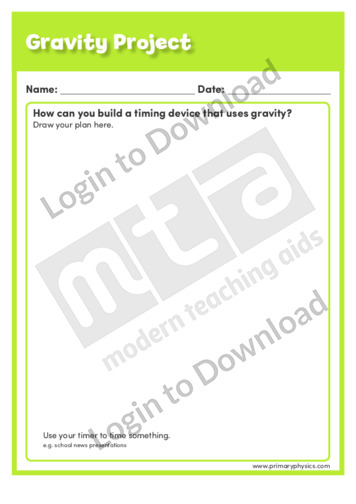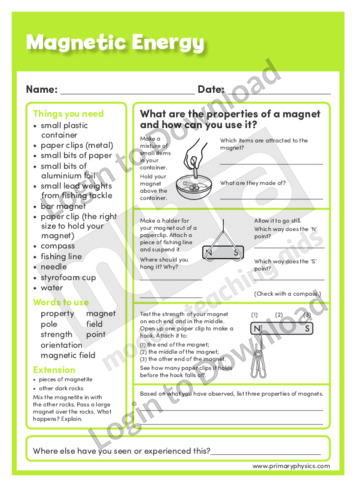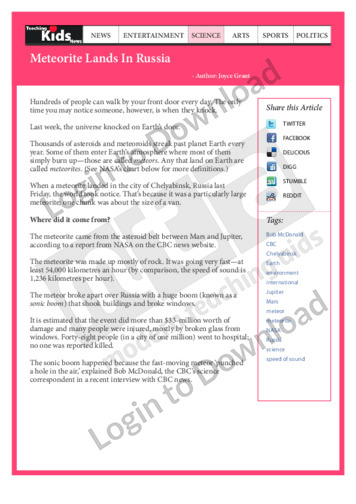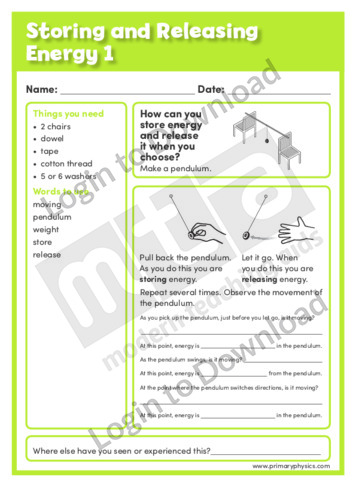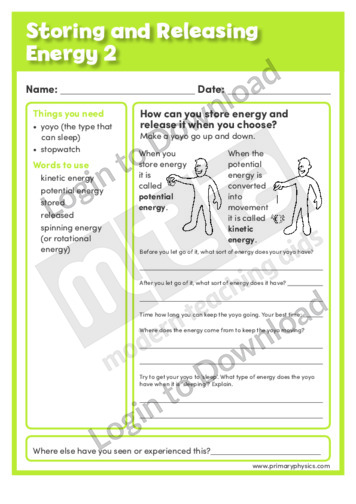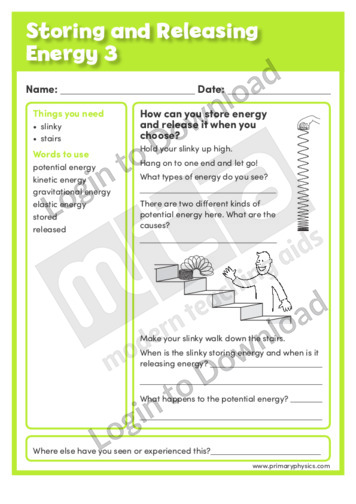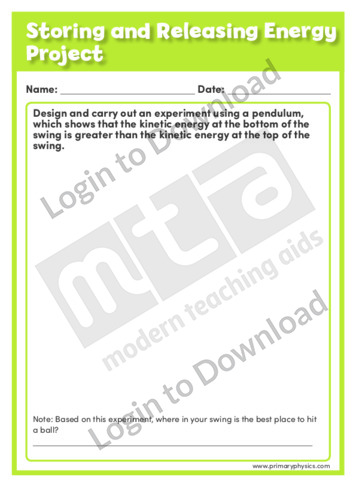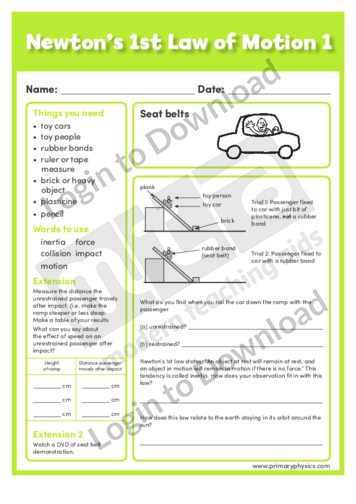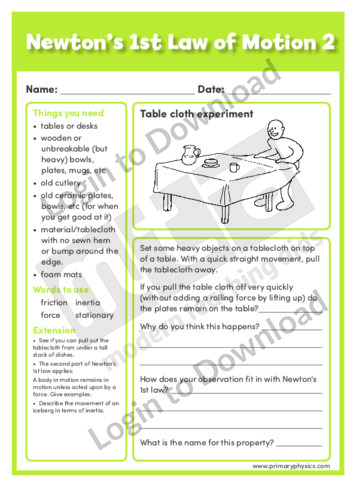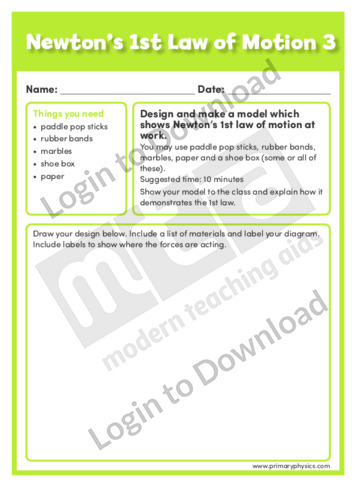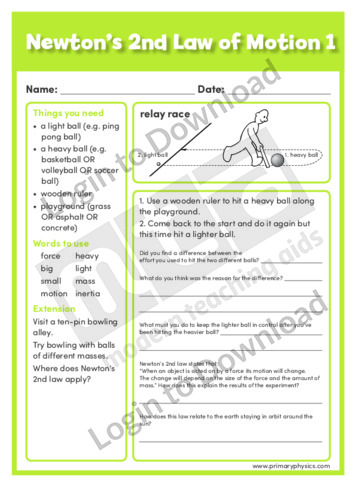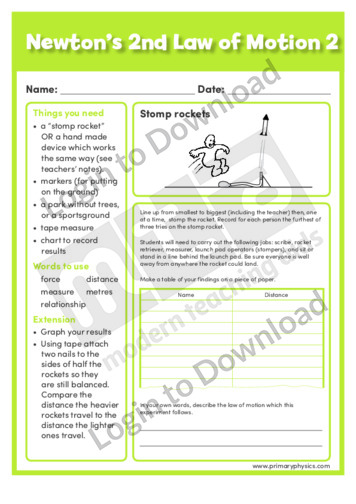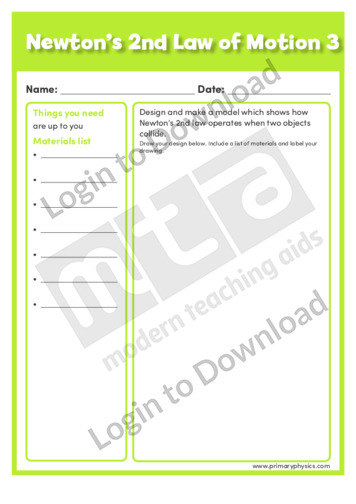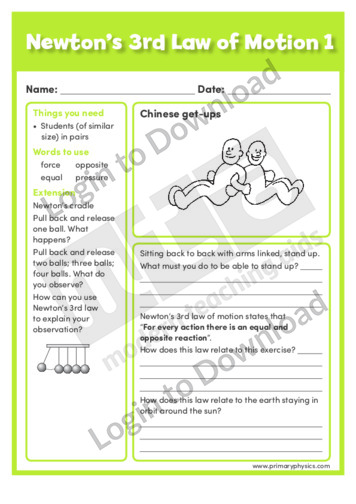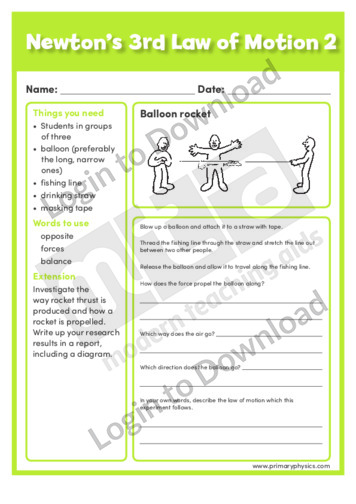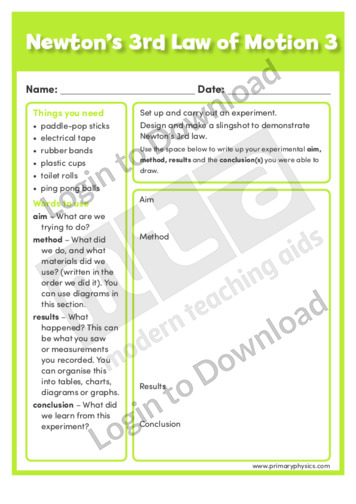This learning activity, ‘Amusement Park Physics’ requires students to go on an excursion to a local amusement park and observe Newton’s laws of motion in action.
This quick reference chart, ‘Amusement Park Physics Review Sheet’ provides a quick summary on simple machines and the basic physics concepts of mass, energy, force and motion.
This learning activity, ‘Amusement Park Physics: Changing Energy’ supports students to identify the conversion of potential energy to kinetic energy whilst on excursion.
This learning activity, ‘Amusement Park Physics: Free Fall’ supports students to identify the forces involved when on a free fall ride at an amusement park.
This learning activity, ‘Amusement Park Physics: Newton’s 2nd Law’ helps students to understand how a ride or game on an excursion demonstrates Newton’s second and third laws of motion.
This learning activity, ‘Amusement Park Physics: Rollercoaster’ supports students to identify how Newton’s first law of motion works when riding a rollercoaster on an excursion.
This learning activity, ‘Amusement Park Physics: Simple Machines’ supports students to identify simple machines used to operate rides whilst on excursion.
This hands-on activity, ‘Build a Roman Arch’ asks students to construct a Roman arch from ice and explore its significance to Roman structures.
This hands-on activity, ‘Centre of Mass 1’ asks students to investigate the concept of centre of mass through making a balancing toy.
This hands-on activity, ‘Centre of Mass 2’ asks students to investigate the concept of centre of mass through balancing a toy on their fingers.
This hands-on activity, ‘Centre of Mass 3’ asks students to investigate balance and the pull of gravity using two buckets with objects of different sizes.
This hands-on activity, ‘Centre of Mass 4’ asks students to investigate balance and the pull of gravity using a scale.
This hands-on activity, ‘Density 1’ asks students to investigate the concept of density being mass packed into a space through packing pieces of paper and aluminium foil into a container.
This hands-on activity, ‘Density 3’ asks students to investigate density through chewing a variety of different foods.
This kids news activity, ‘Director James Cameron Goes To Earth’s Deepest Point’ is about Cameron’s solo dive, in a submarine, to the bottom of the Mariana Trench in the Pacific Ocean.
This Readers Theatre activity, ‘Earthquakes’ encourages students to summarise and paraphrase information in texts. It also builds reading fluency. This activity includes a script for 4 readers.
This Readers Theatre activity, ‘Electricity’ encourages students to summarise and paraphrase information in texts. It also builds reading fluency. This activity includes a script for 3 readers.
This hands-on activity, ‘Energy Conversion 1’ asks students to investigate the concept of energy conversion when bending a wire back and forth.
This hands-on activity, ‘Energy Conversion 2’ asks students to make a wind instrument and investigate how you can change wind into sound.
This hands-on activity, ‘Energy Conversion 3’ asks students to make a water rocket to investigate how you can change chemical energy into movement.
This hands-on activity, ‘Energy Conversion Project’ asks students to design and build a robot to explore the conversion of energy.
This hands on activity, ‘Energy Project’ can be used to assess students’ research and presentation skills in investigating different types of energy.
This kids news activity, ‘Extreme Skydiver Breaks World Records With Dive From Near Space’ is about Felix Baumgartner’s record-breaking high-altitude jump and his other daring feats.
This hands-on activity, ‘Forces’ asks students to investigate what happens when force is used on mass.
This hands-on activity, ‘Friction 1’ asks students to explore the concept of friction and the effect of rubbing sandpaper on different surfaces.
This hands-on activity, ‘Friction 1’ asks students to investigate the concept of frictional forces and what happens when you try to pick up a handful of noodles with and without the use of oil.
This hands-on activity, ‘Friction 2’ asks students to explore the concept of friction and the effect of rubbing crayons on different surfaces.
This hands-on activity, ‘Friction 2’ asks students to investigate the concept of frictional forces and what happens when you build and launch a hovercraft.
This hands-on activity, ‘Friction 3’ asks students to explore the concept of friction and how the use of different materials can control the amount of friction.
This hands-on activity, ‘Friction Project’ asks students to make a meal or snack using friction.
This hands-on activity, ‘Gravity 1’ asks students to investigate the effect of gravity on a piece of dough being dropped from different heights.
This hands-on activity, ‘Gravity 1’ asks students to investigate the force of gravity and what happens when you shoot and drop a rubber band at the same time.
This hands-on activity, ‘Gravity 2’ asks students to investigate what happens when two marbles are dropped from the same height at the same time.
This hands-on activity, ‘Gravity 2’ asks students to investigate how high they can tip a board with different heights of block towers on it before they fall off.
This hands-on activity, ‘Gravity 3’ asks students to investigate what happens when a marble and a tissue are dropped from the same height at the same time.
This hands-on activity, ‘Gravity 3’ asks students to explore the concept of gravitational force and the effect of running on a flat, downhill and uphill surface.
This hands-on activity, ‘Gravity and Mass 1’ asks students to make a simple scale to show that the more mass an object has, the greater the effect of gravity.
This hands-on activity, ‘Gravity and Mass 2’ asks students to use a simple scale to investigate objects of different mass.
This hands-on activity, ‘Gravity and Mass 3’ asks students to introduce the concept of weight as gravity pulling on mass through using scales to measure how heavy different objects are.
This hands-on activity, ‘Gravity and Mass 4’ asks students to investigate the concept of same size, different mass through comparing two objects of the same size but differing weight.
This hands-on activity, ‘Gravity and Orbits 1’ asks students to draw the orbit of a planet around the sun and investigate the relationship between distance and the force of gravity.
This hands-on activity, ‘Gravity and the Tides’ asks students to investigate the effects of the moon’s gravitational pull on the earth when we observe tidal changes.
This hands-on activity, ‘Gravity Project’ asks students to build a timing device that uses gravity.
This hands-on activity, ‘Magnetic Energy’ asks students to investigate magnetic energy through exploring the properties and use of magnets.
This kids news activity, ‘Meteorite Lands In Russia’ reports on a destructive sonic boom event over a Russian town, caused by a meteorite explosion.
This hands-on activity, ‘Storing and Releasing Energy 1’ asks students to build a pendulum and investigate how you can store and release energy when you choose.
This hands-on activity, ‘Storing and Releasing Energy 2’ asks students to investigate the transfer of potential energy to kinetic energy through the use of a yoyo.
This hands-on activity, ‘Storing and Releasing Energy 3’ asks students to investigate the transfer of potential energy to kinetic energy through the use of a slinky.
This hands-on activity, ‘Storing and Releasing Energy Project’ asks to explore kinetic energy through building and conducting an experiment using a pendulum.
This hands-on activity, ‘Newton’s 1st Law of Motion 1’ asks students to investigate the concept of the first law of motion through experimenting with seat belts.
This hands-on activity, ‘Newton’s 1st Law of Motion 2’ investigates the relationship between mass and inertia by allowing students to pull a tablecloth from underneath a set of heavy objects.
This hands-on activity, ‘Newton’s 1st Law of Motion 3’ asks students design and make a model which shows Newton’s first law of motion at work.
This hands-on activity, ‘Newton’s 2nd Law of Motion 1’ asks students to investigate the concept of Newton’s second law of motion and the effect of using force to move a heavy and light ball.
This hands-on activity, ‘Newton’s 2nd Law of Motion 2’ asks students to line up according to height and jump on stomp rockets to reveal the direct relationship between mass and distance.
This hands-on activity, ‘Newton’s 2nd Law of Motion 3’ asks students to design and make a model which shows how Newton’s second law operates when two objects collide.
This hands-on activity, ‘Newton’s 3rd Law of Motion 1’ introduces the concept of Newton’s third law of motion and asks students to form pairs and practice Chinese get-ups by pushing on each other with equal force.
This hands-on activity, ‘Newton’s 3rd Law of Motion 2’ asks students to investigate the concept of Newton’s third law of motion through launching a balloon rocket.
This hands-on activity, ‘Newton’s 3rd Law of Motion 3’ asks students to demonstrate Newton’s third law of motion by conducting an experiment in designing and making a slingshot.
It�s that easy!

